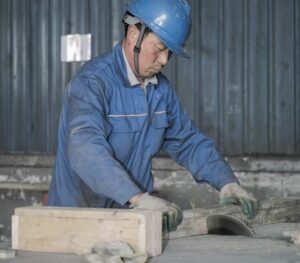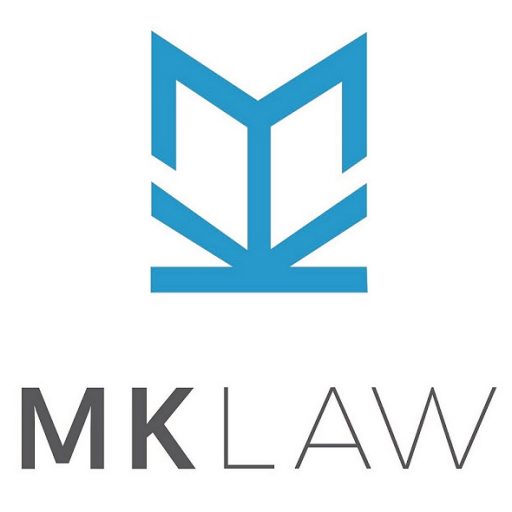29 Sep Major News for Skilled Trades, Technicians, and Hospitality Workers
New Zealand Introduces Two New Pathways to Residence for Skilled Migrants
Published: October 2025 | MK Law Barristers and Solicitors
Immigration New Zealand announced substantial changes to the Skilled Migrant Category (SMC) Resident Visa on September 23, 2025. These reforms introduce two entirely new residence pathways and modify existing requirements, with implementation scheduled for August 2026.
The changes address long-standing gaps in New Zealand’s skilled migration system, particularly for trades workers and experienced professionals who previously faced limited residence options despite contributing essential skills to the economy.
 What’s Changing: August 2026 Implementation
What’s Changing: August 2026 Implementation
The current 6-point SMC system will continue operating until August 2026. From August 2026, applicants will have access to:
- Skilled Work Experience Pathway – for experienced professionals
- Trades and Technician Pathway – for skilled trades workers
- Modified Points System – with reduced experience requirements
These pathways operate alongside existing Green List and other residence categories.
The Skilled Work Experience Pathway
This pathway targets migrants with substantial professional experience, recognising practical expertise gained both internationally and in New Zealand.
The pathway requires a minimum of 5 years of directly relevant work experience and 2 years of New Zealand work experience at 1.1 times the median wage (currently $36.92/hour). Applicants must have current skilled employment or a job offer at the required wage rate, with eligibility limited to ANZSCO skill levels 1-3. Standard health, character, and English language requirements apply.
Notably, this pathway has no formal qualification requirements, making it suitable for professionals whose expertise comes from experience rather than academic credentials. This includes senior IT professionals, hospitality managers, healthcare administrators, project managers, and other experienced professionals in skilled roles.
The Trades and Technician Pathway
For the first time, New Zealand will offer a dedicated residence pathway for skilled trades workers.
 This pathway requires a Level 4 or higher qualification in the relevant trade and 4 years of post-qualification work experience. Applicants need 18 months of New Zealand work experience at the median wage (currently $33.56/hour) and current skilled employment or a job offer. Standard health, character, and English language requirements apply.
This pathway requires a Level 4 or higher qualification in the relevant trade and 4 years of post-qualification work experience. Applicants need 18 months of New Zealand work experience at the median wage (currently $33.56/hour) and current skilled employment or a job offer. Standard health, character, and English language requirements apply.
Eligible occupations will include trades and technical roles across construction, engineering, healthcare, and other sectors requiring specialised skills. This pathway opens residence opportunities for electricians, plumbers, welders, HVAC technicians, automotive technicians, medical technicians, and similar qualified trades professionals.
Changes to the Points System
The existing SMC points system will continue with important modifications. The maximum New Zealand work experience requirement has been reduced from 3 years to 2 years for points, creating a faster pathway to residence for skilled migrants already working in New Zealand.
Points for New Zealand university-level qualifications have been increased to support international students transitioning from study to residence. Wage requirements have been simplified – wage progression is no longer required when applying for residence, with applicants needing only to maintain the same wage level throughout the required work period. However, applicants claiming points for post-graduate qualifications must now also hold an undergraduate degree.
Timeline and Transition Arrangements
From September 2025 through August 2026, the existing 6-point SMC system continues operating. Current Expressions of Interest remain valid under existing criteria, and applications in progress will be processed under current rules.
During the mid-2026 implementation period, new Expression of Interest forms will be released, detailed occupation lists and restrictions will be published, and system testing will occur. The new system launches in August 2026, when both new pathways become available and the modified points system takes effect. The standard 4-month application timeframe applies after invitation.
Sectoral Impact Analysis
Trades and Construction: The Trades pathway fills a major gap in New Zealand’s immigration setup. Previously, skilled trades workers needed degree-level qualifications to qualify for residence, despite severe shortages in these industries.
Information Technology: The Skilled Work Experience pathway supports experienced IT professionals, acknowledging that many senior roles prioritise practical experience over formal education.
 Hospitality: This sector gains viable residence pathways for the first time through the Skilled Work Experience route. Management-level positions meeting wage requirements will qualify.
Hospitality: This sector gains viable residence pathways for the first time through the Skilled Work Experience route. Management-level positions meeting wage requirements will qualify.
Healthcare: Both pathways create opportunities across different healthcare roles – from technical positions through the Trades pathway to administrative and clinical roles through the Skilled Work Experience pathway.
International Education: Enhanced points for New Zealand qualifications support the government’s International Education Plan for Growth, providing clearer residence pathways for graduates.
Practical Next Steps
Current SMC candidates should assess their eligibility under the 6-point system, compare with projected eligibility under new pathways, consider timing strategy for application submission, and begin document collection for their chosen pathway.
Trades workers should verify their qualification level meets the Level 4+ requirement, calculate total work experience post-qualification, assess current or potential New Zealand employment options, and prepare employment history documentation.
Experienced professionals should document 5 years of directly relevant experience, confirm wage levels meet the 1.1x median threshold, assess New Zealand employment prospects, and gather comprehensive employment evidence.
Legal and Professional Considerations
Immigration law changes create both opportunities and complexities. The introduction of two new pathways represents the most significant skilled migration reform since the October 2023 SMC overhaul.
Professional immigration advice becomes particularly valuable when:
- Multiple pathways may be suitable
- Timing decisions affect eligibility
- Complex employment histories require assessment
- Strategic planning is needed for long-term residence goals
The 11-month implementation period provides time for careful planning and preparation, but also creates uncertainty about final implementation details.
Conclusion
The September 2025 SMC reforms mark a fundamental shift in New Zealand’s approach to skilled migration. The introduction of dedicated pathways for trades workers and experienced professionals addresses long-standing system gaps while maintaining quality controls through wage and experience requirements.
For prospective applicants, these changes create new opportunities but also require careful strategic consideration. The choice between proceeding under current rules or waiting for new pathways depends on individual circumstances, risk tolerance, and timing requirements.
As implementation details emerge over the coming months, staying informed about regulatory developments will be crucial for optimal application timing and pathway selection.
About MK Law Barristers and Solicitors
MK Law specialises in New Zealand immigration and employment law, providing practical advice and strong advocacy for clients navigating complex legal requirements. Our team stays current with regulatory developments to ensure clients receive accurate, timely guidance on immigration matters.
Need immigration advice? Contact our Auckland office to discuss your residence pathway options and develop a strategic approach tailored to your circumstances.
This article provides general information about announced policy changes. Individual circumstances vary, and professional advice should be sought for specific situations. Immigration requirements are subject to change.






Sorry, the comment form is closed at this time.